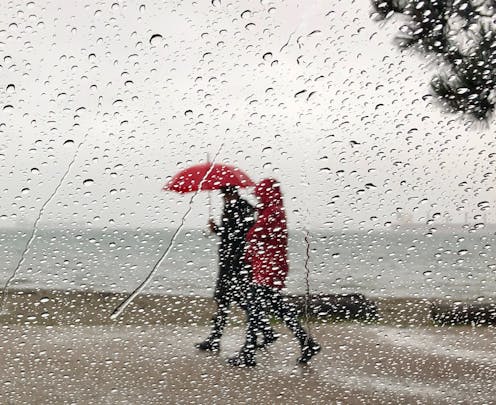A wet spring and summer means more mosquitoes but now we've got Japanese encephalitis virus to worry about too
- Written by Cameron Webb, Clinical Associate Professor and Principal Hospital Scientist, University of Sydney

Mosquitoes are a problem every summer. But the recent arrival of the mosquito-borne Japanese encephalitis virus in eastern Australia brings more significant concerns.
There are hundreds of different mosquito species in Australia but only a dozen or so pose a public health threat. Activity of these mosquitoes shifts from season to season with differences in rainfall and temperature.
A changing climate and extreme wet weather events can boost mosquito numbers and bring additional threats.
So how can we reduce the risk of contracting diseases that spread via mosquitoes, including Japanese encephalitis?
First, some mozzie basics
Mosquitoes need stagnant water to complete their life cycle. Immature mosquitoes hatch from eggs and complete their development underwater until they turn into pupae, before emerging as adult mosquitoes.
Female mosquitoes need blood before laying eggs. They seek blood from a wide range of animals and, as well as sucking up blood, they can also pick up a virus. That virus can then be passed on to another animal, or person, when they need another hit of blood.
Mozzies make you sick by injecting a cocktail of saliva and virus when they bite. The “mozzie spit” may leave you with an itching red lump as well as a dose of a potentially deadly disease.
Read more: 5 virus families that could cause the next pandemic, according to the experts
What diseases can mosquitoes transmit?
Australia has always battled with mosquito-borne diseases. Ross River virus infects thousands of people every year. Extreme weather events appear to be increasing the number of cases around our cities and growing coastal communities.
Murray Valley encephalitis virus is incredibly rare but can be fatal. Significant outbreaks have been closely associated with flooding throughout the Murray-Darling Basin region.
Mosquito-borne diseases pose a threat to more than just people. Horses can suffer severe symptoms following infection with Ross River virus or Kunjin virus.
There are also concerns about Bovine ephemeral fever and lumpy skin disease in cattle.
Even in our backyard, our dogs can be affected by parasites spread by mosquito bites.
What about Japanese encephalitis virus?
The discovery of mosquito-borne Japanese encephalitis virus last summer changed the landscape of mosquito-borne disease in Australia.
The illness can be mild, with common symptoms of fever, joint pain and a rash. In severe cases people also experience headache, neck stiffness, confusion, seizures, and sometimes coma and death. Fewer than 1% of those infected will develop a severe brain infection, encephalitis, which may be fatal.
Japanese encephalitis virus is a significant health concern across Southeast Asia and the Western Pacific. The virus circulates between mosquitoes and waterbirds but pigs can be hosts too.
The virus was first detected in commercial piggeries where reproductive losses had been observed and Australia declared it a “communicable disease incident of national significance” in March.
The virus has been detected in humans, pigs (both in commercial piggeries and feral populations) and mosquitoes across South Australia, Victoria, New South Wales, Queensland and Northern Territory. There have been 40 cases of human disease, including six deaths.
A recent study of five regional communities in southern NSW suggests almost 9% of the human population had been exposed to the virus last summer.
What might happen this summer?
We’re expecting another wet summer thanks to a third consecutive season influenced by La Niña. Flooding has already started.
More rain doesn’t just mean more mosquitoes: it means better conditions for waterbird breeding too. More water, more birds, and more mosquitoes sets the scene for potentially more activity of Japanese encephalitis and other mosquito-borne diseases.
Read more: La Niña will give us a wet summer. That's great weather for mozzies
The mosquito species of greatest concern is Culex annulirostris. This mosquito is the one most likely to be driving transmission of the virus among animals, as well as spillover to the human population.
This species is closely associated with freshwater habitats. With extensive flooding across many regions, there will be plenty of suitable habitat available throughout the coming summer.
So how can we reduce the risk?
While authorities are investigating ways to control mosquito populations such as spraying insecticides especially around piggeries and other high-risk locations, insecticides alone won’t eliminate the risk of Japanese encephalitis virus this season. Other strategies are required.
A safe and effective vaccine is available and authorities are developing strategies to ensure “at risk” communities and individuals have access to it.
But there simply isn’t enough vaccine available globally to vaccinate everyone at risk in Australia.
Surveillance will provide an early warning of elevated risks. Authorities will track and test mosquito populations for the presence of virus, as will various networks of animal surveillance. If detected, authorities can strategically respond through enhanced surveillance, control, or education programs.
Many of the ways we reduce mosquito bites during summer months to allow us to enjoy time outdoors, whether it is in the backyard of bush, will also protect against the mosquitoes carrying these viruses.
Read more: How to mozzie-proof your property after a flood and cut your risk of mosquito-borne disease
Covering up with loose fitting long sleeves, long pants, and covered shoes will create a barrier to mosquito bites.
Applying topical insect repellents, especially formulations containing diethyltoluamide, picaridin, or oil of lemon eucalyptus, will provide safe and effective long-lasting protection against biting mosquitoes.
Preventing mosquito bites is the best way to protect yourself and your family from mosquito-borne diseases.
Authors: Cameron Webb, Clinical Associate Professor and Principal Hospital Scientist, University of Sydney





